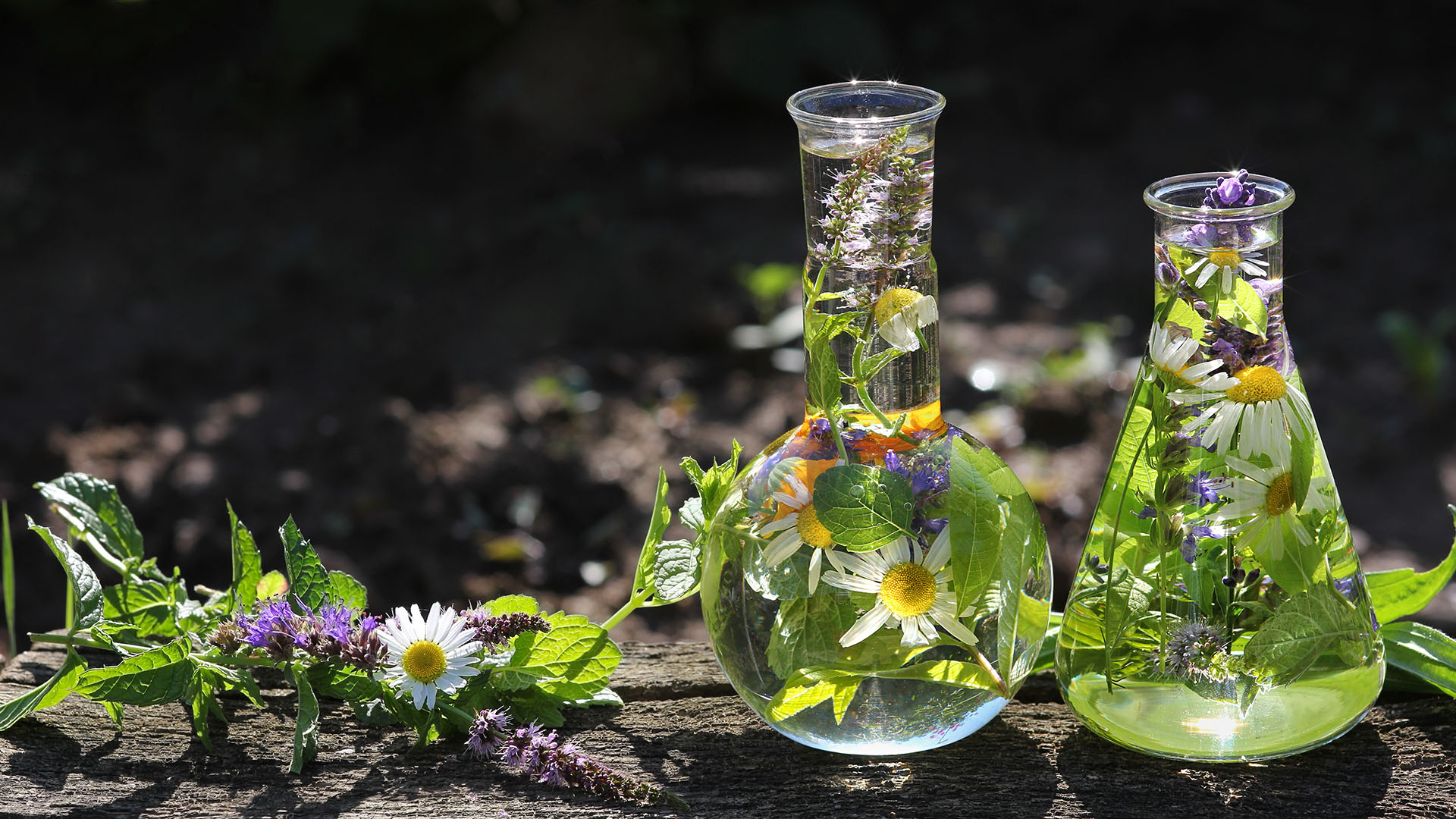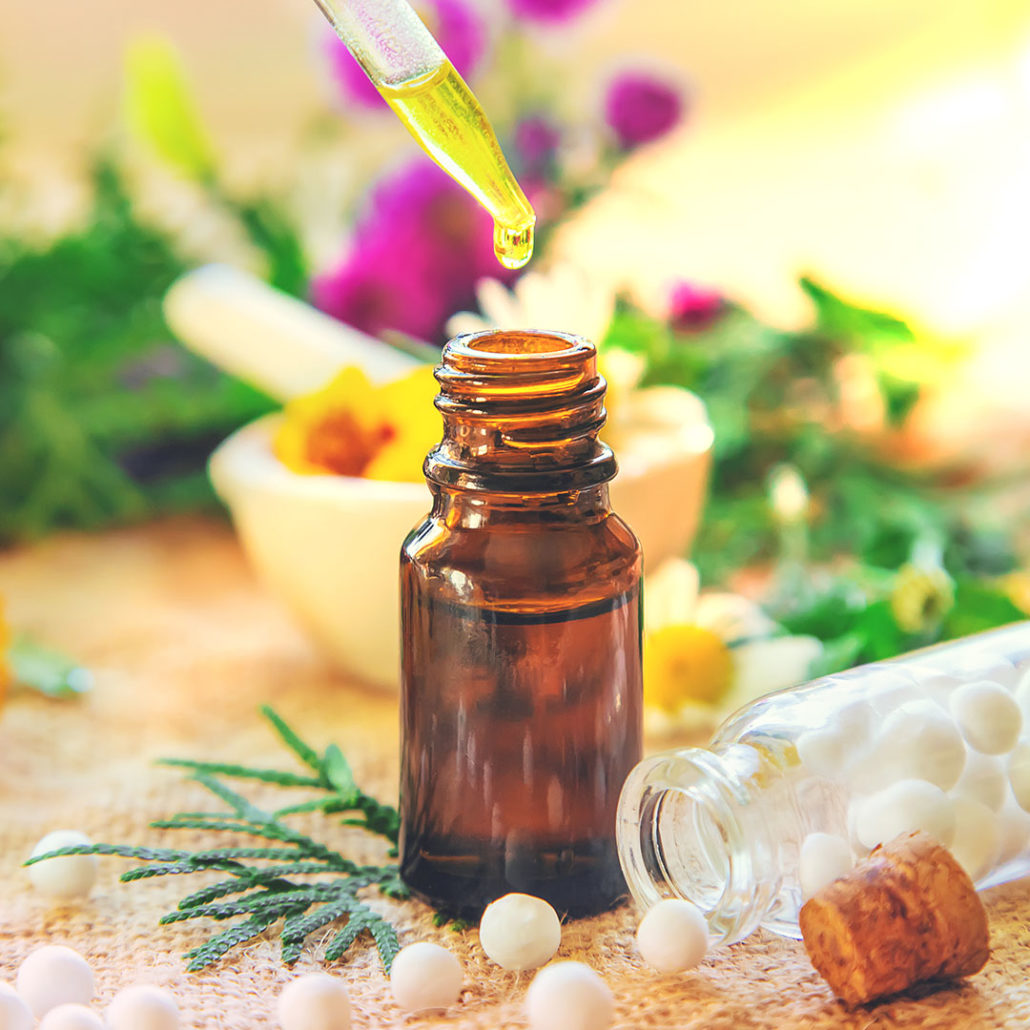Homeopathy
Here’s the science behind homeopathy and what you should know about it.

Here’s the science behind homeopathy and what you should know about it.
Homeopathy is a natural medical science that is both gentle and effective. This unique therapeutic system takes on a holistic approach as it aims to treat the whole individual. Disorders, diseases, and illnesses are expressed through a variety of symptoms that may be emotional, mental, and/or physical in nature. These symptoms are seen as an attempt for the body to restore balance and health.
The system was created by German physician, Dr. Samuel Hahnemann in the late 1700s, and is based on the law of “Similia Similibus Curentur” (let likes be cured by likes). This guiding philosophy behind homeopathy is based on the Law Of Similars that states by matching the symptoms that are caused in healthy people by a certain substance, that same substance has the best chance of producing a curing response with diseased individuals that express those same symptoms.
Conventional medicine is quite powerful and certainly has its place on the medical spectrum. However, suppressive pharmaceutical drugs tend to treat only the symptoms of a disease without addressing the root causes. For instance, antibiotics, while very effective in many cases, have been overused with the sacrifice of damaging an individual’s auto-immune system. In other words, if a patient is dependent on pharmaceutical drug therapies to find relief, this instead may make them more vulnerable to disease than a healthy individual’s own defense mechanisms would typically fight off.
A more natural approach, like homeopathy, is a holistic restoration process that combines spiritual and physical states of the body. Homeopathic remedies are prepared from natural substances to precise standards and work by stimulating the body’s own healing ability. They are extremely safe due to their small doses, totally natural, and extremely effective when taken correctly.
Homeopathy is very popular in Europe, especially France, England, Scotland, Germany, The Netherlands, Belgium, Austria, and Greece. Approximately 40% of French people use homeopathic medicine, and in Switzerland, homeopathic medicines are strongly supported by the government. In 2011, the Swiss government reported that homeopathic treatment is effective and inexpensive and that it should be compensated by Switzerland’s national health insurance program.
Clinical experience has shown that homeopathy may be used for a number of conditions and issues and that the benefits include:
Very simply, homeopathy attempts to stimulate the body to recover itself. To get a better understanding of exactly how homeopathy works, we have to take into consideration some standard holistic principles.
First, we must accept that all symptoms, no matter how uncomfortable they are, represent the body’s attempt to restore itself to health. Instead of looking upon the symptoms as something wrong which must be set right, we see them as signs of the way the body as a whole is attempting to heal itself. Instead of trying to stop the superficial problem with suppressants, as conventional medicine does, a homeopath will give a remedy that will cause the problem in a healthy person, and thus stimulate the ill body to restore itself.
Second, we must see every case and symptom as that unique individual’s case or symptom. Our bodies are so different, and we each experience health problems in our own distinctive way. Yet conventional medicine acts as if all similar problems are alike, and offers a series of suppressive drugs or protocols for healing that only focuses on the symptoms at hand and not the cause. Homeopathy looks for a substance or remedy that will heal that individual person.
Finally, we need to view homeopathy from more than a chemical sense. Proponents of homeopathy state that the dilution of a plant extract or chemical to a certain point, such as homeopathic remedies are diluted, leaves the extract or chemical untraceable and therefore useless. But this is not the way to view homeopathy, as it is the process of dilution and the information contained in the dilution that makes homeopathy work.
Although validation and the effectiveness can be linked to hundreds of years ago when Dr. Samuel Hanhemann conducted experiments and research of his own on the efficacy of homeopathic remedies, more contemporary research is arising that proves the validation of homeopathy and its usefulness in modern medicine.
Homeopathic medicines are manufactured by repeatedly diluting and succussing a preparation of the original substance, mainly plants, and minerals, in water and alcohol. Validation of the potency of homeopathics and the dilution process can now be witnessed through the research of Shui Yin Lo, a former visiting associate professor in the chemistry department at California Institute of Technology. Lo made a discovery that water when combined with a substance and vigorously shaken, begins to cluster. These clusters grow bigger and stronger as dilution and shaking (succussion) continues. The clusters start to assume a form that mimics the structure of the original substance itself, so even though the chemical can no longer be detected in a chemical sense, its “image” and information is there, taken on by the water molecules. This discovery validates the “potentized” theory behind homeopathics and its efficacy.
In addition, the preservation of specific information within water has been scientifically researched. Water molecules themselves serve as information carriers due to their special geometric composition and the resulting combination of patterns that often takes on a spiral form that binds around ions, enzymes, and other active electromagnetic substances. The existence of “water geometry” as well as water’s stability, even after it has been converted into steam, was proven in both the University of Pennsylvania and Berkeley University studies. These scientific findings give a proper explanation of the vast health benefits of homeopathy.

“It’s interesting because homeopathy is, by conventional standards, kind of weird, but by the understanding of quantum mechanics it becomes based on hard science.”
Dr. Bruce Lipton
Research by Dr. Jacques Benveniste empirically observed that highly diluted biological agents (i.e. in the absence of any physical molecules) triggered relevant biological systems. In his paper published in Nature, he reported that white blood cells called basophils, which aid in the regulation of the body’s response to allergens, can be activated to produce an immune response by solutions of antibodies that have been diluted so far that they contain none of these original molecules at all. Additionally, the paper noted, “Water could act as a ‘template’ for the [antibody] molecule, for example by an infinite hydrogen-bonded network, or electric and magnetic fields.” Newsweek picked up on the paper with an article entitled “Homeopathy finds scientific support“.
Two professors of chemistry measured the amount of heat emanating from plain double-distilled water and compared that with double-distilled water in which a substance was placed. Both the control water and the treated water underwent consecutive dilution between one to thirty times, with vigorous shaking in-between each dilution, which represents the common pharmacological method in which homeopathic medicines are made. The researchers conducted over 500 experiments, approximately half of which were made with double-distilled water that was mixed with a specific acid and base substance and half were in the control group of only double-distilled water. The researchers found that 92% of the test solutions with the added acid or base substance had higher than expected heat emanating from them (sodium chloride was one of the salt substances and a type of vinegar was one of the acid substances tested).
source: Thermodynamics of extremely diluted aqueous solutions, Annals of the New York Academy of Sciences, 1999
In one study, Dr. David Taylor Reilly and his colleagues compared the effects of a homeopathic hay-fever remedy with a placebo. In this double-blind controlled study, Dr. Reilly found that those who received the homeopathic remedy had six times fewer symptoms and were able to cut their use of antihistamines in half.
source: Randomised controlled trial of homeopathy versus placebo in perennial allergic rhinitis with overview of four trial series, The British Medical Journal, 2000
Jennifer Jacobs, M.D., led a study that was conducted in Nicaragua and included eighty-one children with acute diarrhea. All the children received standard anti dehydration treatment for diarrhea, consisting of water containing salt and sugar. In addition, half the children received homeopathic treatment and half received a placebo. The study confirmed homeopathy’s effectiveness: the recovery time for children receiving homeopathic treatment was 20% faster than those receiving the placebo, reducing the bout of diarrhea by one day. These results are heartening because diarrhea is the leading cause of death in developing countries such as Nicaragua.
source: Treatment of Acute Childhood Diarrhea With Homeopathic Medicine: A Randomized Clinical Trial in Nicaragua, Pediatrics Official Journal of the American Academy of Pediatrics, 1994
An explanation of how ‘ultramolecular’ dilutions work is that water is capable of storing information relating to substances with which it has previously been in contact. Recent research on hydrogen bonds in water provides some support for this ‘memory’ theory. The Swiss chemist, Louis Rey, found that the structure of hydrogen bonds in homeopathic dilutions of salt solutions is very different from that in pure water. He reached the conclusion that the phenomenon results from the vigorous shaking of solutions that takes place during homeopathic ‘succussion’. Moreover, using the laboratory technique called spectroscopy, other researchers have found that different homeopathic medicines and different dilutions of the same medicine can be distinguished from each other, even though all should contain nothing but water.
No harmful effects have been observed in the use of homeopathy in thousands of cases spanning hundreds of years. Today, the World Health Organization recognizes homeopathy as “the second largest therapeutic system in use in the world.” Homeopathic medicines are highly diluted and given in such small doses that they don’t cause any side effects.
At the New York Center of Innovative Medicine, homeopathy is one of many different treatment options considered for each patient. Our center has a fully stocked dispensary with numerous different homeopathic, each specifically tested and brought in from high-quality manufacturers from around the world. However, the use of any homeopathic remedy is only provided to patients after an in-depth initial evaluation reveals it would be necessary for your personalized program of treatment. Because each person is unique, and their health needs are different, there is no set protocol for using homeopathy nor is the patient able to request the use of specific herbs and preparations if the medical team finds it would not be as helpful as another treatment or a specific combination of therapies. The ultimate goal is the complete restoration of health in the most efficient and safe manner, and with so many therapeutic options, it is impossible to know if any homeopathic remedy is right for you without an initial evaluation at our clinic.
Contact NYCIM and Book Your Appointment Today
or
» Take Our Questionnaire to See if You’re a Good Candidate
or
» See Additional NYCIM Services & Therapies
Innovative Medicine is about restoring your body and mind’s power to heal itself. Learn how to tap into your unique healing potential by signing up for our newsletter.

 Ho’oponopono
Ho’oponopono
Trackbacks & Pingbacks
[…] Homeopathy – bringing harmony to the system […]
Leave a Reply
Want to join the discussion?Feel free to contribute!